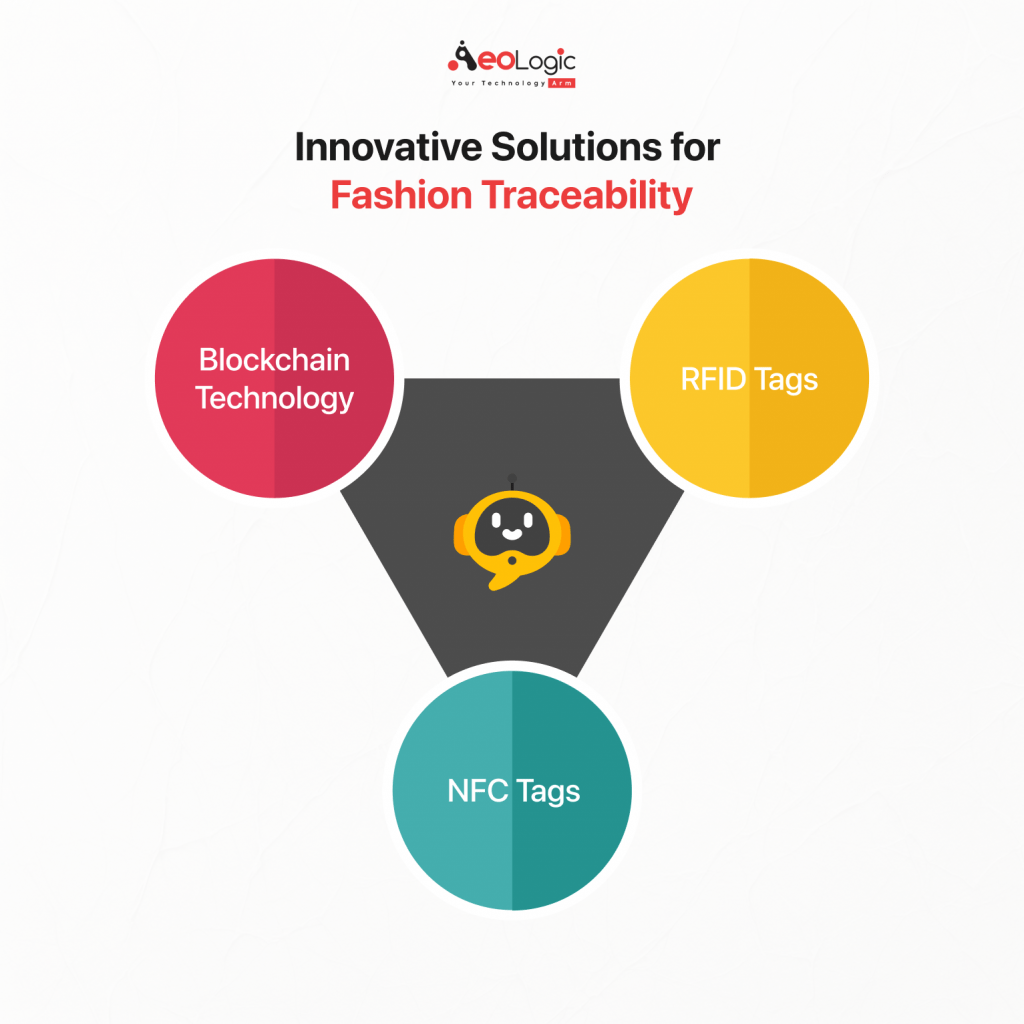Nowadays, the fashion industry invests in traceability to be sustainable. Although, previously shrouded in secrecy, is witnessing a revolution towards translucency. Consumers are highly demanding ethical and sustainable practices, seeking to understand where their products come from. Suppose, a world where your favourite silk blouse paints its origin story- the mulberry farm in China, the professed embroiderer in India, the ethical color house in Italy. This translucency, formerly impossible, is getting a reality thanks to the growing significance of supply chain traceability in the fashion assiduity. In this blog, we are going to discuss why fashion industry invests in traceability to be sustainable.
Also read: The Importance of RFID Technology on Retail Industry
What’s Traceability in Supply Chain?
Traceability refers to the capability to track a product’s path from its origin to the final consumer, furnishing translucency and responsibility throughout the supply chain. Over 63 percent of associations have enforced technological results to ameliorate traceability in their supply chain, this has raised the global supply chain visibility by 22 percent. Fashion industry invests in traceability to make its supply chain more sustainable.
Tracing the origins of accoutrements and manufacturing processes, allows brands to identify and address issues of different vulnerabilities in their supply chain and calculate pitfalls to their operations. Also, product traceability enables consumers to make informed choices about the products they buy, supporting brands that prioritize ethical and sustainable practices.
The Significance of Traceability in the Fashion Industry
The fashion assiduity, while glamorous on the face, frequently grapples with hidden complications. Enterprises about unethical labour practices, environmental damage and material misrepresentation plague its long, global supply chains.
Ethical Labor Practices
Exploitative labour practices, including child labour, unsafe working conditions and minimum stipend, are current in numerous garment manufactories worldwide. Without traceability, brands may intentionally reference accoutrements from suppliers that engage in these unethical practices. By slipping light on the origins of accoutrements and the labour conditions involved in their product, product traceability enables brands and consumers to make further ethical choices.
Environmental Impact
Fashion product is notorious for its environmental footmark, with processes similar as cloth dyeing, chemical treatments, and garment manufacturing contributing to pollution and resource reduction. Due to the low continuity over 85 percent of the cloth products end up getting waste contaminating the terrain. Traceability allows brands to track the impact of their supply chains, from extraction of raw material to product disposal. Relating areas of high environmental impact and enforcing sustainable practices like using organic or recycled accoutrements and reducing energy consumption.
Material Misrepresentation
Greenwashing and false claims of sustainability are rampant. 73 percent of millennials are ready to pay further for sustainable products. Leading numerous brands to tout their products as “eco-friendly” or” sustainable” without furnishing concrete substantiation to support these claims. Traceability enables brands to corroborate the authenticity of their sustainability claims by furnishing transparent information about the accoutrements used in their products, including their origin, product styles and environmental footmark.
Carbon Footprint of Fashion Production
Fashion product is a major contributor to global carbon emigrations, counting for roughly 10 percent of humanity’s total carbon footmark. From the civilization of raw accoutrements to manufacturing, transportation and distribution, every stage of the fashion supply chain requires energy and emits greenhouse gases. Traceability helps to track and reduce their carbon footmark, from sourcing sustainable accoutrements to optimizing transportation routes and reducing waste.
Also read: How RFID Empowers End-to-End Supply Chain Traceability
Innovative Solutions for Fashion Traceability

The fashion assiduity is scuffling with the demand for translucency, and innovative technologies are rising to the challenge.
Blockchain Technology
Blockchain technology makes this possible. It creates a tamper-proof tally that tracks and maintains a digital record of every step a garment takes. Solutions like Origin by Acviss powered by Blockchain track products from raw material sourcing and product to distribution and retail, giving brands and consumers a detailed story of a product’s path.
- Secure Tracking- Each sale is etched onto the blockchain, furnishing a transparent and tamper proof record of the product’s path.
- Authenticity- With each step recorded, blockchain empowers brands to corroborate product authenticity and combat Brands equipped with Origin allow consumers to overlook Acviss QR markers by using the devoted app to confirm a garment’s genuine source.
- Translucency at your fingertips- Consumers gain access to a product’s story through QR codes or apps. This translucency builds trust and empowers informed choices.
RFID Tags
Radio frequency Identification (RFID) markers bedded in apparel make real time tracking of products a reality. Brands can overlook these markers to gain deep visibility into product movement. Fashion giant ZARA has enforced RFID markers to fasten their supply counting process and make it effective.
- Individual Item Tracking- Each garment equipped with an RFID label becomes traceable, offering detailed perceptivity into its path from product to trade.
- Supply Chain Optimization- Real time tracking empowers brands to cover supply situations, optimize logistics and streamline their supply
- Enhanced Responsibility – By surveying RFID markers, brands can trace material origins, corroborate product authenticity and insure compliance with ethical and sustainability norms, fostering higher
NFC Tags
Getting instant information about a garment simply by tapping your phone is a convenience anyone dreams about. Near Field Communication (NFC) markers make this possible. Attached to apparel, these markers offer consumers a wealth of product details with a simple valve.
- Instant Information- Consumers gain immediate access to a garment’s origin, accoutrements, and product styles by tapping their smartphones on NFC enabled products.
- Empowered Choices- Armed with transparent information, consumers can make informed opinions and support brands that prioritize ethical and sustainable practices.
- Beyond the Marker – NFC markers go beyond traditional markers, furnishing details like sustainability credentials and care instructions, enhancing the shopping experience.
Also read: The Power of IoT in Retail to Optimize Your Business
A Sustainable Future with Product Traceability
Traceability isn’t just a buzzword; it’s a transformative supply rewriting the fashion narrative. As the action gets further and further backing from the assiduity giants, we inch near to a future where every garment reveals a story of ethical sourcing, environmental responsibility and empowered consumers. This isn’t a fairy tale ending, but a new chapter in fashion industry invest in sustainability, woven with the thread of clarity.










